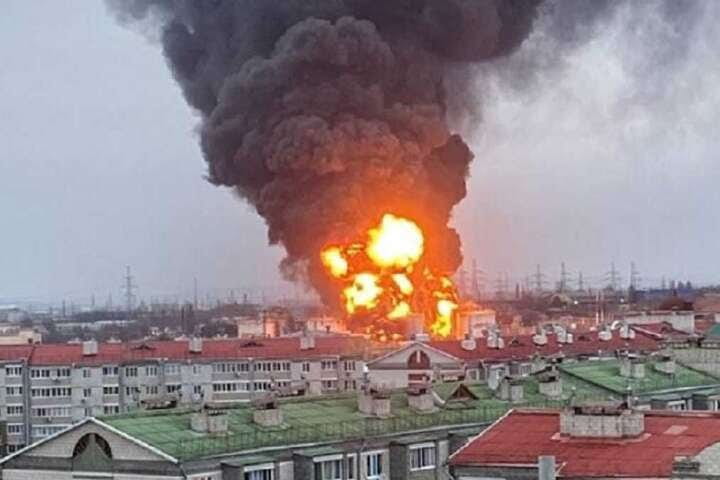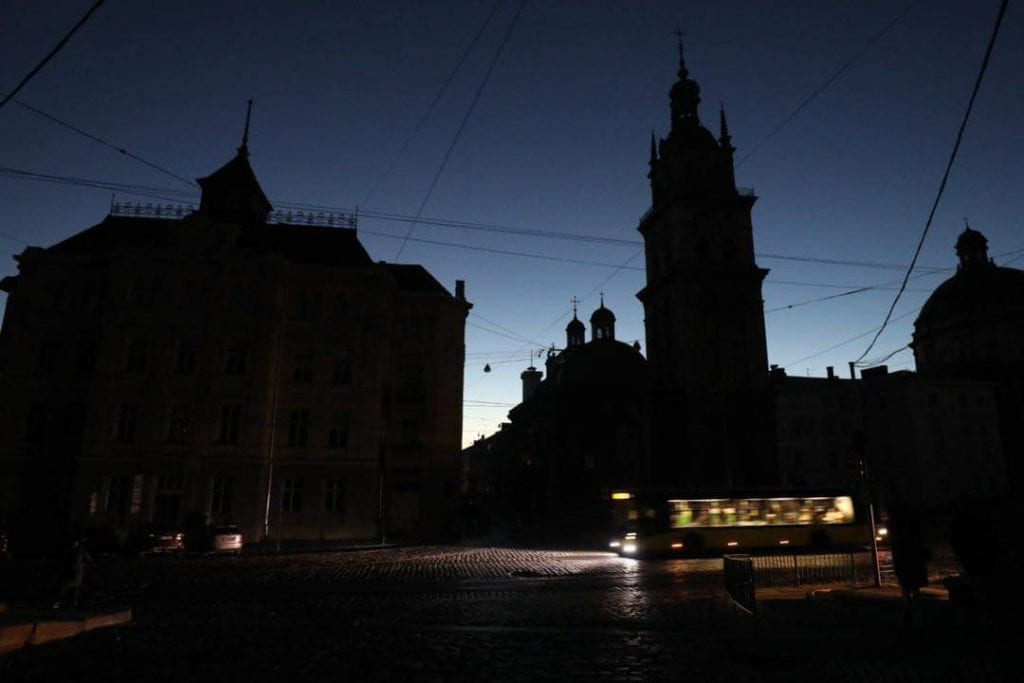
It’s Monday morning, and Ukraine is on fire. Russia launched 84+ missiles and drones against Ukraine.
I don’t know how you start your work week, but here’s how mine went: I woke up to running for my life into the basement. My cat outran me. My father followed. We felt it. A very strong shake. It felt like an earthquake. Then, loud noises. Explosions. More shaking. More noises. More explosions.
We are okay now. it’s been a few hours, and the initial fear has passed. My hands no longer tremble, and I am just angry.
“I understand now how these people on the front line feel,” my father says. He was my basement companion.
For a few hours, we didn’t have electricity, heating, or Internet. Russians targeted our tiny village in Western Ukraine simply because they could. It’s less than 1,000 residents, no military infrastructure, just cute little houses in a suburb to a town in Western Ukraine. We’re less than two hour drive to the NATO border, and we get bombed like this.
Russians hit in a place that’s thirty minute walk from my house.
Luckily, no victims. Just a major infrastructure damage to electricity grid.
“We’re lucky they used those better missiles on us,” my father says, “If they used their cheaper ones, those could destroy anything. They cannot be controlled.”
I wonder if many Europeans still remember how to wake up to bombs falling on them?
“I am full of anger”
“I was running when I heard the missiles,” says Viktoriya Bilyavska, a resident of Kyiv. She is a woman in her early thirties, and she works as a communication manager.
“I like to run very early, but I felt like being lazy today, so I postponed my run,” she continues, “I heard a whistle when I was almost done with my run, and I realized that something really bad happened. It took me a few good seconds to understand that it was actually a missile attack on Kyiv.”
Viktoriya was in the center of Ukraine’s capital, Kyiv, in the morning of October 10, Monday, when Russia launched a massive missile attack on the entire country. The woman was close to Shevhecnko park, one of the most popular city destinations, when she realized that the city was being bombed.
“I passed the park maybe five minutes before the strike,” she says, “If I were there earlier or later, I’d be dead.”
She remembers noise and vibrations in the air, but she has a hard time putting the rest of the things together.
“As soon as I understood what’s going on, I ran into the closest subway station,” the woman explains, “It was right next to me, so I managed to save myself. More missiles were launched into the place where I was.”
Russian rockets destroyed important parts of Kyiv’s historical center. They targeted Taras Shevchenko University, one of the most important educational institutions, destroyed the park nearby, damaged a touristic bridge, and hit residential buildings. At least ten people were killed. Sixty are wounded, but the numbers are likely to rise.
“It reminded me of the first days of the war,” Viktoriya says, “But even then, when we were all anxious, there were not so many attacks. This time, Russians launched more missiles than ever before.”

“I have no mercy for them. I want them to live what we live.”
Ruslan is a resident of Zaporizhya. He and his family did not want to move out when the full-scale invasion happened. Zaporizhya is thirty minutes away from the invading Russian army; it is in a close proximity to Zaporizhya nuclear plant, the largest one in Europe, and which has been under Russian occupation since March.
Zaporizhya is also being under constant shelling. There are regular missile attacks on residential buildings. On Sunday, Russian rockets killed 17 people who were sleeping peacefully in their apartments. 89 were wounded. Zaporizhya was also targeted on Monday as well as during all previous weeks. The missiles targeting residential areas became a regular thing.
“In my store, the windows were broken because a missile hit pretty close from where I work,” Ruslan says. His connection is unstable because a lot of mobile networks are overloaded in Ukraine at the moment as people are trying to reach their relatives across the country.
“I tried to convince my wife and son to leave the city a few months ago because it was too dangerous, but they decided to stay,” the man tells me, “My son is about to graduate high school, and my wife works in the library. They did not want to go anywhere.”
Ruslan, too, did not want to leave his home city when the war started; and he decided to stay even when Russia started terrorizing Zaporizhya daily.
“It is quite ironic that only a week ago Putin announced that he annexed Zaporizhya and that it is part of Russia,” Ruslan says, “And yet, they keep on bombing us every day. if they consider us Russia, why do they bomb us? A bunch of terrorists!”
“Russia is a terrorist state, and anyone who sees what we’ve seen here in Zaporizhya will tell you what I tell you,” the man proceeds, “They are trying to scare us, terrify the people, and that’s why they kill us and destroy what they can. They know they cannot win, so they want to kill as many Ukrainians as they can in the meantime.”
“I have no mercy for them,” he adds, “Russians enjoy killing Ukrainians. I used to have friends in Russia, and they have all been celebrating genocide of Ukrainians. They like what their government is doing, and they celebrate the war.”
Ruslan has been running a small dairy store, but he is unsure whether he can keep it open anymore. However, people like his place a lot, and he still has customers, so he wants to keep on working for them.
“There are missiles and blasts every day now,” the man concludes, “I shake every time, and I get scared, but I also know that I have to keep on working for my people. I cannot just abandon my home like that. Nobody wants to be a refugee.”
“The last time, I remember the blast when the windows in my office broke,” he says, “I fell to the ground and prayed to live. If I didn’t leave my city then, I don’t think I ever will.”
Anna Romandash is a Ukrainian freelance journalist and 2022 Research Affiliate at the Mgrublian Center for Human Rights at Claremont McKenna College
